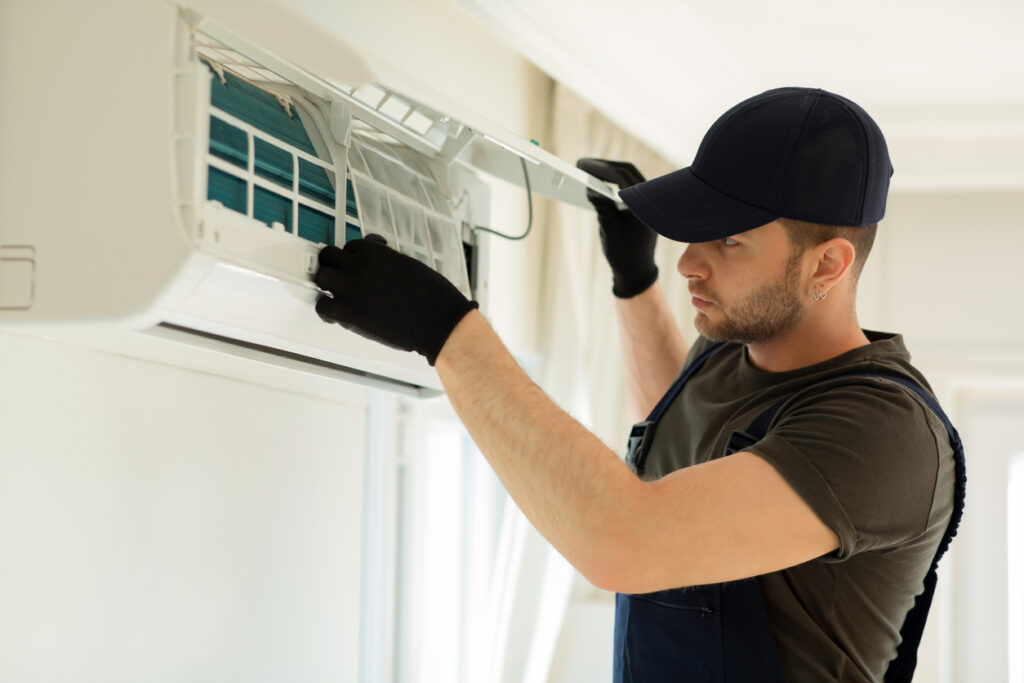
Spring is beautiful with trees, shrubs, and flowers in bloom and pollen everywhere! Pollen can travel hundreds of miles on a light wind. Pollen particulates are microscopic, and you cannot see them but they are in the air along with dust and other allergens. Southern states from Florida to Virginia can experience rain that nurtures flowering trees and winds that spread the pollen. Sneezing, asthma attacks, headaches, scratchy throats, and itching eyes are some of the problem allergies associated with airborne pollen. Millions of people throughout the country experience allergic rhinitis or “hay fever” each year, especially during the spring. There are several ways to keep the pollen out of your home, beginning with your HVAC system.
Change Air Filters
Begin the season with clean air filters in your HVAC system. This is the easiest and most effective means to keep pollen and dust out of circulation in your home. The filter traps these particulates. You need high-efficiency media filters that come in several sizes and forms to fit into most HVAC systems. The higher the minimum efficiency rating value, or MERV rating, the better filtration the filter provides. This includes very effective fan filters.
Install a new filter at the end of winter or early spring. Check the filter every month and change it every one to three months as needed. High efficiency media filters may be able to be replaced every six to twelve months.
If your system is not set up to use a high efficiency media filter with a MERV 11 rating or higher, you may consider having Capital City evaluate your system to see if one can be fitted for your system. High efficiency media filters that are located at the indoor equipment are most effective at cleaning all the air in the home to help improve air for children and adults with respiratory allergies.
High efficiency media filters are also very helpful in homes with dogs and cats. Pets that spend time outside can collect pollen on their coats. The pollen sticks to them when they enter the house. The media filter collects these particulates along with the pet dander as air is circulated through the home.
Seal Ducts in Your HVAC
Check your ductwork for tears and cracks. Particulates can find their way into the cracked ductwork, and they are then circulated into the air in your home. Small flying insects and even small rodents can also enter tears in the ducts and nest in the ducts. The ducts can be sealed with mastic or foil tape. Or, you can call in an HVAC professional to inspect, seal, or replace the ductwork.
You may consider upgrading to a special sealed HVAC system that will prevent pollen infiltration more effectively by sealing air leakage. This system is more expensive, but it may be advisable for persons with severe allergies.
Keep Doors and Windows Closed During Pollen Season
Keep your doors and windows closed completely, even though you would like fresh air on warm, spring days. Microscopic pollen can blow in through screens. Rely on a clean HVAC system for ventilation. This includes your heater or air conditioner. Your HVAC system may have an outdoor intake that allows you to install a filter that will capture pollen before it goes into the main system.
Clean the registers and vents on your HVAC. Pollen and dust can build up by the vents. Clean the slats frequently to remove dust, animal hair, and dander, along with pollen.
Consider UV Lights in Your HVAC System
The ultraviolet lights installed in an HVAC system are the equivalent of “bug zappers” for harmful particulates. They kill pollen, dust, mold spores, and microscopic bacteria. They also eliminate flying insects and other particulates that may infiltrate the air ducts. Your HVAC professional will tell you if UV lights will work with your system.
Other recommendations include using landscape elements that do not have extensive pollen production. This can include fruit trees.
A clean, healthy HVAC system is the most effective way to control pollen and dust in your home. Contact us for a complete check-up of your HVAC system. We offer regular maintenance service that will keep your HVAC system in top condition.